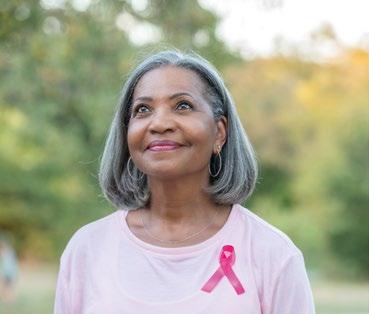
3 minute read
Breast cancer and bone health
from EYES Newsletter Winter 2021 /22 (The newsletter of the ESE Young Endocrinologists and Scientists)
Breast cancer represents the most common type of cancer in women, with an incidence that is continually increasing. On the other hand, survival has substantially improved during recent decades. These improvements are due to both the availability of better treatment options and the establishment of broader breast cancer screening programmes. The increasing number of breast cancer survivors creates inevitably new needs for their care and specifically for their bone health care.
Many of the available treatments, such as aromatase inhibitors (AIs), suppress the production or counteract the effect of reproductive hormones, which are critical for the maintenance of normal bone remodelling. Tamoxifen is a selective oestrogen receptor modulator (SERM), which exerts oestrogen agonist effects in bone that are beneficial for post-menopausal women. However, chemotherapy-induced amenorrhea leads to negative bone effects in pre-menopausal women. Other chemotherapy regimens may induce premature ovarian insufficiency (POI). Bone health may also be compromised by the disease course, as there is a possibility of bone metastases.
Advertisement
Data regarding bone loss and increased fracture risk in breast cancer patients have resulted in recommendations by prominent scientific societies regarding bone health evaluation of all women with breast cancer. The goal is to identify women at high risk of fracture and to introduce anti-fracture interventions in those at higher risk. Bone mineral density (BMD) measurement should be performed in all women older than 65 years of age, independently of the next anti-cancer therapeutic steps, and in those who are going to be treated with AIs before treatment initiation, even if they are younger than 65 years. Of course, premenopausal women who receive tamoxifen or any kind of chemotherapy and experience POI should be evaluated with BMD too.
Factors that increase the risk of fracture in these women are BMD T score < -2, treatment with AIs, older age (especially >65 years), premenopausal women with POI, oral corticosteroid use for more than 6 months, low body mass index (BMI <20 kg/m2), personal or family history of hip fracture, as well as smoking habits. A detailed medical history will reveal all these factors and enable identification of an increased risk of fracture. FRAX score is a traditional fracture risk estimation tool for the general population. However, it does not include anti-cancer treatment as a specific risk factor and thus its value in women with breast cancer has not been evaluated. In case it is used, physicians should bear in mind that it may underestimate the fracture risk of these women, as a number of important parameters are not included in the algorithm.
After BMD measurement and baseline fracture risk assessment, all breast cancer survivors should be advised to follow lifestyle changes that favour bone health. More specifically, a diet rich in calcium is recommended along with appropriate supplementation, if needed, of both calcium (1,000 mg per day in total) and vitamin D to maintain 25OHD levels of 30-40 ng/ml (2,000 iu per day in case of normal levels or 4.000 iu per day in case of deficiency). Breast cancer survivors should also follow a weekly exercise programme with weight-bearing exercise, which is essential for bone strength and bone quality improvement, although this is a general recommendation deriving from data of women without breast cancer. Alcohol consumption is suggested to be limited, while the need for smoking cessation should be emphasised.
On top of the above recommended lifestyle changes, some selected cases, those with T score <-2 or those with more than two risk factors present, need to also be treated with bone-directed, anti-resorptive therapies to manage low BMD, prevent rapid bone loss and decrease the risk of fracture. Indeed, some relevant efficacy and safety data are available for bisphosphonates and denosumab, while exogenous hormonal therapies (oestrogens or teriparatide) are not indicated in women with a history of breast cancer.










